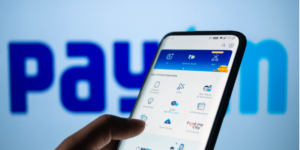The company was preparing to remove these fake accounts but stopped when it realised that the politician was directly involved in the network
The revelations have come from Sophie Zhang, a former data scientist at Facebook, who in September last year wrote a 6,600-word internal memo explaining how Facebook failed to act against political leaders who used the platform to manipulate voters
After recognising that a cluster of suspicious accounts including the account of a BJP MP, the Facebook staffer responsible for taking down those accounts paused

Social media giant Facebook has once again been accused of being hand in glove with ministers from India’s ruling Bharatiya Janata Party (BJP). A recent report from The Guardian has found that Facebook allowed a network of fake accounts to artificially inflate the popularity of a BJP Member of Parliament (MP).
The company was preparing to remove these fake accounts but stopped when it realised that the politician was directly involved in the network.
The revelations have come from Sophie Zhang, a former data scientist at Facebook, who in September last year wrote a 6,600-word internal memo, detailing examples of how the company knew of political leaders from around the world, including India, who were using the platform to manipulate voters, but failed to act.
Responding to Inc42’s queries about the allegations made in The Guardian report, a Facebook spokesperson said: “We fundamentally disagree with Ms Zhang’s characterization of our priorities and efforts to root out abuse on our platform. We aggressively go after abuse around the world and have specialized teams focused on this work. Over the years, our teams investigated and publicly shared our findings of three CIB (coordinated inauthentic behaviour) takedowns in India. We’ve also continuously detected and taken action against spam and fake engagement in the region, in line with our policies.”
According to the report, in December 2019, Zhang detected four sophisticated networks of suspicious accounts that were producing fake engagement such as likes, comments and shares, on the post of political leaders affiliated with both the BJP and the Indian National Congress, India’s principal opposition party.
After recognising that a cluster of these suspicious accounts included the account of the BJP MP, the Facebook staffer responsible for taking down those accounts paused. Subsequently, despite Zhang seeking approval to ‘checkpoint’ the account — where it is locked unless the owner can provide proof of their identity — the situation was characterised as one of low priority and approvals weren’t granted.
In August last year, a The Wall Street Journal report had alleged that Facebook had failed to apply its rules for hate speech violations to politicians and MPs affiliated with the BJP, which rules at the centre. Two months after the publication of that report, Facebook’s then public policy head Ankhi Das, who was named several times in the WSJ report, resigned from her position.









